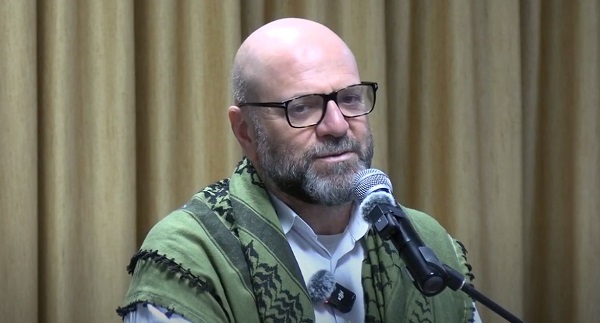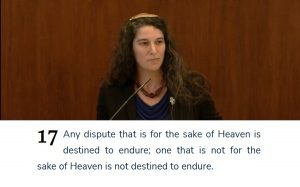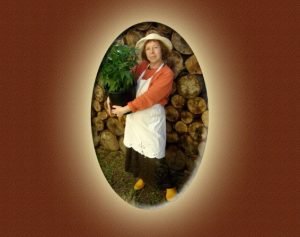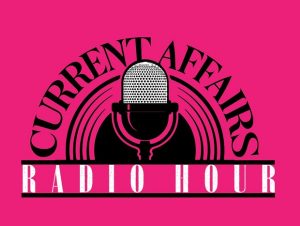Sami Awad: Auschwitz pilgrimage taught me the need for collective trauma healing
11 min read
Presenter: A Palestinian Christian from Bethlehem shares his commitment to the healing and nonviolence taught by his faith. Speaking Aug. 17 in Eugene, Sami Awad:
[00:00:10] Sami Awad: I grew up in a family that is a refugee family. In 1948, my father’s family, my uncle Alex’s family, suffered from the Nakba—the catastrophe that the Palestinians faced, and sadly, that history still remains, continuous till this day.
[00:00:29] The Jewish forces came and kicked the family out of their home and they became refugees. And one thing that is very, very important that we keep reminding ourself as a family was that the neighborhood that they grew up in was a neighborhood where Jews, Christians, and Muslims lived together in peace.
[00:00:52] This is our history that certain ideologies and entities tried to erase—that Jews, Christians, and Muslims lived together in peace. And I think it was actually the Jewish neighbors that saved the family from being killed on that day that they were evicted from their home, and the family became refugees.
[00:01:16] My grandmother always insisted that as a family we will never seek revenge and retaliation for what happened to us. This is how she understood her faith as a Christian. And not only do we not seek revenge and retaliation, but we proactively seek peace and reconciliation with those who did this to us.
[00:01:38] And so we could also just ignore the situation and say, no, we don’t want to retaliate and we will move on with our life and trying to regroup and trying to rebuild. But she said, no, you turn back to those who did the injustice to you and seek peace and reconciliation with them.
[00:01:55] That’s the seed that my grandmother planted in the whole family, and us as grandchildren.
[00:02:02] Growing up, under the Israeli military occupation, I grew up seeing soldiers and settlers harass us as Palestinians and harass my father. At the same time, I grew up with this message of, ‘Seek peace and reconciliation with them,’ and it was very, very challenging.
[00:02:21] How do you make peace with the people that are harassing you, that are violent to you, that are mocking you? And I remember at one point even asking my father, ‘What do you mean make peace with them? And look how they just treated us.’
[00:02:36] But one of the great influences on my life was another uncle of mine: Mubarak Awad. Mubarak in the early ’80s established a center in Jerusalem called the Palestinian Center for the Study of Nonviolence. He had studied Martin Luther King and the civil rights movement in the U.S., Gandhi and the liberation movement in India.
[00:03:02] And as a Palestinian he came and said, ‘As Palestinians, we have the right to resist occupation, we have the right to self-determination, and we could do that through nonviolence.’
[00:03:13] And I remember the first action I went with him was when I was 12 years old, and we were asked to plant trees in the land that was going to be confiscated by settlers. And I remember the instructions very well as a 12-year-old child, my uncle saying that we are here to plant trees: ‘No matter what the army does, no matter what the settlers do, you are here to plant trees.’
[00:03:44] And it was the first time that I actually met Israeli activists, Israeli peace activists, because growing up, again, the experience as soldiers and settlers who were violent to us, Israeli activists who were with us standing with us as Palestinians in our right to defend our land.
[00:04:02] And as we were planting the trees, the soldiers came and the settlers came and they were uprooting the trees that we were planting. And I could only remember: ‘Plant the tree, plant the tree,’ and I planted my tree. And then we were asked to leave. And the settlers came the next day and uprooted all the trees that we planted and took the land.
[00:04:29] But that action as a 12-year-old child changed my life. It was so empowering to do something, and I began to understand: This is what nonviolence is about.
[00:04:39] Nonviolence is about doing, it’s about engaging. It’s about empowering. It’s about not giving up. It’s about knowing that every person can do something and there is no excuse. When it comes to nonviolence, there is no excuse to engage, and that was very, very powerful for me.
[00:05:04] A few years later, the Israeli army arrested my Uncle Mubarak, and because of how active he was in leading the nonviolence movement in Palestine, he was put on trial and he was deported. He was kicked out of the land, never allowed to return and live there as a resident or a citizen of that land.
[00:05:27] And that was a turning point in my life as well. Why did they see in him a threat? They actually labeled him a threat to the national security of Israel. A nonviolent activist who was working with Israelis and Palestinians was seen as a threat and his deportation was my commitment to trying to answer that question.
[00:05:52] In 1998 I went back to my homeland, to Bethlehem, and I started an organization called Holy Land Trust. Our aim was strengthening communities for the future during a time of a peace process that was happening at that time, the Oslo peace process. We felt that if we don’t have the voice of the community engaged and active in self-determination, this peace was not going to last. And sadly, the peace failed.
[00:06:23] And part of my journey, coming from my faith background, was to also begin to ask: What would Jesus do in a situation like this? So it was a spiritual awakening and at the same time, trying to really understand what is happening.
[00:06:39] And during that time, as I was engaged in these questions, I was invited to go to a pilgrimage. You know, many of you come to the Holy Land for pilgrimage. Those of us in the Holy Land have to go somewhere else for pilgrimage.
[00:06:55] And it was a weird invitation, but I said yes to it. And that pilgrimage was to go on a spiritual pilgrimage in the death camps of Auschwitz and Birkenau in Poland, to bear witness to the Holocaust and what happened there.
[00:07:09] As a Palestinian, and I say this as most Palestinians, we don’t deny the Holocaust because we claim to be the victims of the most victimized people. So as victimized as they were, we are even more of the victim. Or we say, ‘They’re doing to us what happened to them.’ And I have to be very honest here: In the past I would say, ‘But not as extreme as what happened to them.’ Now, I cannot say that, in all honesty.
[00:07:39] And I went to Auschwitz. And in Auschwitz, I began to understand one of the key core reasons why we are in the situation we are in. And this is how trauma affects us as human beings, how it shapes our identity, how it shapes our behavior, how we perceive ourselves, and how we perceive others.
[00:08:01] In Auschwitz, I heard Israeli teachers tell Israeli children—their 13-, 14-year-old children—that if they are not strong, if they’re not committed to the state, if they don’t join the army, the same thing will happen to them as what happened to their ancestors or their grandparents in Auschwitz.
[00:08:24] And they were told that the Palestinians will do to you what the Nazis did to your ancestors.
[00:08:30] Indoctrination into an ideology of fear, into an ideology of mistrust. How can you achieve peace when there is no trust?
[00:08:44] And one of the things I began to realize at that point, and I was saying it for many, many years—again, never expecting it to be at this level—that if you bring absolute fear and absolute power together, you create absolute disaster.
[00:09:01] The Israeli society is a society that is embedded in an ideology of fear that continues to be manipulated by the establishment and a society that is completely embedded in an ideology of absolute power over others.
[00:09:21] And this combination is a disaster for us as Palestinians, but I would even say for Israelis and for Jews as well.
[00:09:29] And so a big part of my journey began to understand how we need to engage in trauma healing, and collective trauma healing work. And, surprisingly, understanding that a lot of what Jesus did was healing. You know, Jesus, if he did two major things, it’s preaching and healing. He kind of jumped between those. He walked through the Galilee, teaching in their synagogues and healing their illnesses and proclaiming the kingdom. So the three things that he was doing continuously.
[00:10:03] What is healing? For me, healing is liberating. When Jesus was healing, he wasn’t healing to show off his messianic powers. He was healing because he was liberating those who were traumatized from the constraints that would not allow them to live their life the way God intends that life to be lived.
[00:10:24] And so a big part of the journey that I began engaging in was: How do we heal the traumas of our communities as Palestinians and Israelis?
[00:10:32] And I received a lot of pushback, a lot of pushback from Palestinians. ‘How dare you talk about healing the traumas of our oppressor when they are doing this to us, when we are the ones that need healing and liberation. How dare you talk about the healing of a rapist who continues to rape a woman under his control.’
[00:10:56] That was what I was accused of, but I really believe that if we don’t do this, as I said before, it will be an absolute disaster.
[00:11:05] On Oct. 7, one of the first statements made by Israeli officials and leaders as a response to what Hamas did: ‘Remember when we told you they’ll do to us what the Nazis did to us?’ And there was this immediate shutting down of the consciousness of the Israeli Jewish community.
[00:11:29] Now it was all about survival and that Hamas was going to commit the genocide against them exactly the same way as the Nazis did.
[00:11:40] And it became very, very clear that there was a second agenda to destroy, to take over. This agenda was to ethnically cleanse and the voices of Israeli politicians were very, very strong in calling for genocide of the Palestinians.
[00:11:59] So where are we now?
[00:12:01] One of the things that we continue to engage in and fully believe as Palestinians, and this is where our nonviolence lies today, is the concept of sumud. Sumud means steadfastness. Sumud means resiliency. Sumud means that we will stay on a land, our ancestral land, our land that is our connected to our indigenous culture.
[00:12:31] Sumud means staying in the land of the olive tree, staying in the land of the rivers and the mountains that we lived in and grew up in. Sumud has connected us as Palestinians to something greater than our political aspirations. It has connected us to what it means to be a nation, a First Nations people. Sumud has invited us to look deeply into our existence as Palestinians, and to look into our own faults, to our own people and ask: What can we do?
[00:13:09] One of the projects I am very proud to be part of and engaged in is something called the Palestinian Councils, where Palestinians are meeting, talking to each other, sharing with each other, grieving with each other, connecting, uniting, healing our issues between us.
[00:13:32] And we’re holding these councils in different parts of the West Bank and Jerusalem and the 1948 territory, which is now Israel. But also holding these councils in Jordan for Palestinians who live in the diaspora. And next month I’ll be in Portugal holding council for Palestinians who live in Portugal as well. And then there’s one we’re going to do in Abu Dhabi.
[00:13:58] And so for me, the optimism that in the midst of the destruction that we are facing, in the midst of the genocide that we are facing and continue to face, the little hope that exists for us as Palestinians in the land is an awakening into what it means to be Palestinian. Not Fatah, not Hamas, not this, not that, but what it means to be part of a people’s group.
[00:14:27] The second level of our hope, which is even greater for me, is in you. We are not able to organize demonstrations and protests and sit-ins and boycott campaigns and different activities in the land, but you have no idea the hope that activists around the world are bringing to the Palestinian people in the West Bank and Gaza. And it’s really helping many, many Palestinians survive and not feel they are in isolation. And my encouragement to you is to continue.
[00:15:06] A consciousness has been prevailing on this planet for a very long time. A consciousness of separation, a consciousness of duality, a consciousness of the us and the them, a consciousness that we are better than others. And this goes fully against the teachings of the kingdom that Jesus was inviting us into. Jesus was inviting us into love, into compassion, into care, into humbleness.
[00:15:35] Jesus was inviting us into purity of the heart, of seeing the stranger as equal. And it’s time we reclaim those teachings without fear. And it is not easy. It is not easy because even when we claim such beautiful teachings, such honorable teachings, the system will still see us as a threat because you are creating alternatives to the system instead of creating allegiance to the system itself, which is what it wants.
[00:16:13] Once we begin to shift the needle away from the system, the system will react and will react violently. But Jesus was very, very clear in this. In the Beatitudes, he finishes with, ‘You will be persecuted,’ and I really believe the greatest invitation that Jesus invited us is to welcome the persecution that we will receive.
[00:16:36] You will be rejected for following his teachings. It is very, very simple. And he says, ‘Follow me,’ and ‘Follow me’ means follow his path, and his path was a path where he experienced persecution, to the point of death.
[00:16:49] And the moment that you get rejected for working for peace and justice in Palestine, Israel, or for addressing the injustices that you face in your community, what comes after that? What comes after Jesus says you will be persecuted?
[00:17:03] Celebrate. Celebrate! Celebrate and rejoice. It doesn’t sound like you’re persecuted, go into victimization and sorrow and ‘Poor me’ and ‘Oh me.’ Once you experience persecution, you are commended to celebrate and rejoice for this is what they did to the prophets before you.
[00:17:29] The prophetic calling for us is to be peacemakers. The messianic calling for us is to be peacemakers. And with this, this is my words of encouragement to you.
[00:17:40] Presenter: Sami Awad of Nonviolence International speaks in Eugene Aug. 17. For his entire hour-long talk, see Todd Boyle’s YouTube channel.







